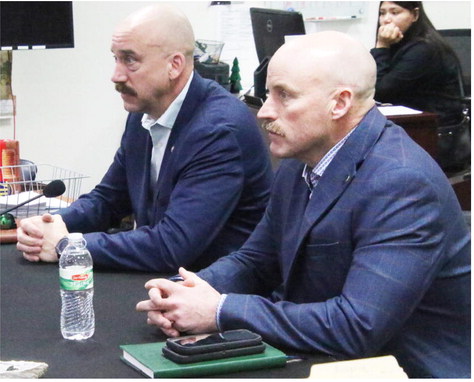Education Advisory Council Meets For One Last Time In Montana
A long-standing advisory council designed to garner input from professional educators on state education policy convened for its final meeting Wednesday, April 19, after the Legislature passed a proposal Monday, April 17, that would disband the group.
Kelly Elder, current chair of the Certification Standards and Practices Advisory Council (CSPAC), described it as a “sad day” for Montana’s public education system and an ironic outcome given the pro-business stance that Republican state leaders have espoused.
Businesses rely on a well-educated workforce, Elder said, as do all Montanans with an interest in promoting a “vibrant and participatory democracy.” He joined Montana Federation of Public Employees President Amanda Curtis, who spoke during the council’s opening public comment period, in laying CSPAC’s elimination at the feet of Republican lawmakers and Gov. Greg Gianforte.
“I apologize to the parents of this amazing state, to the administrators, to the teachers,” Elder said to fellow council members. “Shame on the Legislature and shame on the governor. It’s absolutely despicable, it’s embarrassing, and I want to thank all of you for your hard work, for your tireless commitment to kids, and for doing what’s right to try to make sure we have the best educators in front of our youth in this state as we can.”
The council’s fate was all but sealed when Elder and Curtis maligned the negative impact they believe the move will have on Montana youth. Lawmakers had already forwarded House Bill 231, sponsored by Rep. Brandon Ler, R-Savage, to Gianforte, who requested the legislation as part of his broader effort to reduce state spending and bureaucracy. Supporters including state Superintendent Elsie Arntzen argued that HB 231 would allow the Board of Public Education — the state agency CSPAC reports to — to create ad hoc advisory councils on an as-needed basis to respond to new issues arising in public education.
“The board and [the Office of Public Instruction] have the ability to create advisory councils as they see fit for their needs at any given time based on their priorities and resource allocations toward those priorities,” Dylan Klapmeier, Gianforte’s education adviser, told the House Education Committee earlier this session.
The Legislature first established the seven-member volunteer council in 1987 to advise the Board of Public Education — Montana’s smallest agency — on state regulations governing educator certification and professional practices. By law, the council’s members had to include representatives from different segments of the public education system, including an elementary teacher, a school administrator, a locally elected trustee and a faculty member from one of Montana’s campus-based educator preparation programs. As Elder noted during Wednesday’s meeting, past CSPAC members include School Administrators of Montana Executive Director Rob Watson and former Board of Public Education Chair Tammy Lacey, whose latest term expired earlier this year.
Elder told Montana Free Press in an interview Wednesday that prior to attending CSPAC meetings, he had little understanding of the impact the council had on school policy in the state. Though it’s not a policy-setting entity, Elder characterized CSPAC as a bridge between Montana classrooms and the decision makers shaping the quality of education across the state. And he doesn’t agree with the governor’s framing of its elimination as a cost-saving, bureaucracy-reducing move.
“Red tape relief is fine,” Elder said, “but the red tape that was here was professionals from within the community making recommendations to the Board of Public Education.”
During Wednesday’s meeting and in MTFP’s interview, Elder also pointed to a fiscal note prepared for HB 231 indicating that CSPAC’s annual costs equated to roughly $5,000 for member travel to quarterly meetings, and that disbanding the council would result in no meaningful financial savings to the state.
Elder has several times insinuated that HB 231 is directly related to a high-profile altercation between CSPAC, the governor’s office and the Office of Public Instruction last year. The situation began with the council’s decision to include the word “equity” in its revised version of the Professional Educators of Montana Code of Ethics, a document that Board of Public Education Executive director McCall Flynn told MTFP last year is “aspirational” and fully under the authority of CSPAC. Gianforte and OPI head Arntzen questioned that authority and objected to the inclusion of “equity” on the basis of their belief that the word is tied to a national political agenda. CSPAC ultimately substituted the phrase “educational inclusion” in its place.
As CSPAC closed out its final hour Wednesday, members turned their attention to recommendations about how the Board of Public Education might continue to solicit educator insights. The first suggestion, put forth by Lone Peak High School teacher Kate Eisele, was for the board to use its statutory authority to essentially recreate CSPAC, perhaps with shorter terms for members and a seat on the council for a Montana parent. Others raised the notion of representatives from the fields of early childhood and higher education, and encouraged the board to stick with a more broadly focused advisory council rather than a series of smaller groups focused on specific issues. Elder then turned the discussion of recommendations to non-CSPAC voices in the room.

